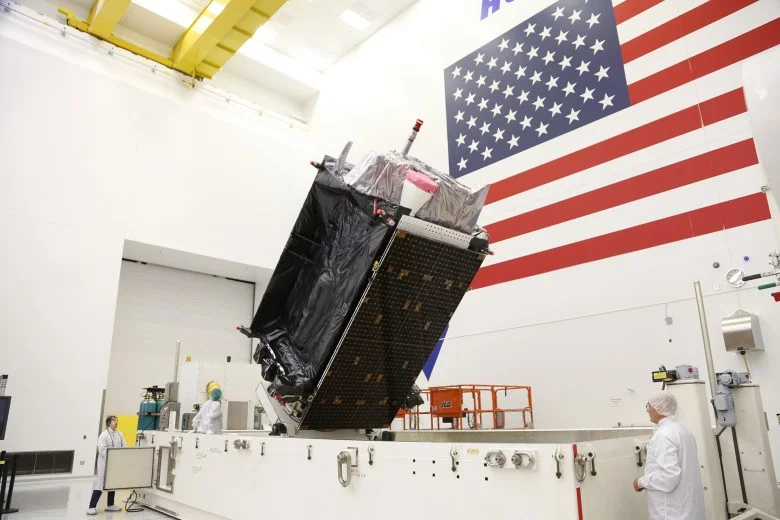
SpaceX Breaks Records with Rapid GPS Satellite Launch for US Space Force
SpaceX continues to redefine the boundaries of rapid space deployment, launching an advanced GPS satellite for the U.S. Space Force in a record-breaking short turnaround. This mission not only showcases SpaceX's agility but also highlights the increasing importance of resilient space capabilities in a contested environment.
A Falcon 9 rocket is slated to lift off from Cape Canaveral Space Force Station in Florida, carrying the GPS III SV-08 spacecraft into orbit. The launch window opens at 1:23 p.m. EDT (1723 GMT) today, May 30th. You can watch the action live via SpaceX's webcast. This launch marks an extraordinary achievement as SpaceX received the official order as recently as March 7th, completing all preparations in less than three months. This is a significant leap from the typical 18 to 24 months usually required for U.S. national security missions.

Col. Jim Horne of the Space Force emphasized the importance of this launch, noting its ability to “respond to emergent constellation needs as rapidly as Space Vehicle readiness allows.” This speed is crucial in maintaining U.S. advantages in space.
The GPS III SV-08 satellite is the eighth in its series, built by Lockheed Martin. These satellites are far more advanced than their predecessors, offering up to three times greater accuracy and are nearly eight times more resistant to jamming. Col. Andrew Menschner highlighted the growing need for such resilience, stating that adversaries are actively seeking to undermine U.S. space capabilities, particularly in positioning, navigation, and timing provided by the GPS constellation.
This mission's swift turnaround is not just about speed; it's a testament to process refinement. As Col. Menschner said, they aim to further refine their processes to achieve even faster deployment times in the future.
The GPS III SV-08 satellite is named in honor of Katherine Johnson, a pioneering NASA mathematician immortalized in "Hidden Figures". This continues the tradition of honoring NASA luminaries, following GPS III SV-05 and GPS III SV-07, named after Neil Armstrong and Sally Ride, respectively.
The current GPS constellation consists of 31 active satellites, with an additional seven serving as spares. The rapid deployment of advanced satellites like GPS III SV-08 is critical for maintaining its operational effectiveness and resilience.
While ULA was initially slated to launch some of these GPS satellites on its new Vulcan Centaur rocket, the Space Force shifted missions to SpaceX's Falcon 9 to expedite deployment of new GPS capabilities. This decision underscores the importance of operational readiness and flexibility in the face of evolving national security needs.
Less than half a year prior, GPS III SV-07 was launched. According to Col. Andrew Menschner, this launch was already lightning fast at five months, but they asked themselves if they could do better. The rapid procession has led to this new launch, at just over three months.
The SV-08 mission highlights the possibilities for improving national security launch timelines, especially for the GPS program. According to Malik Musawwir, Vice President of Navigations Systems for Lockheed Martin, constant iteration and improvement in all areas of testing and integration have helped achieve faster timelines.
The mission will also carry the newest Military Code, also known as M-Code capabilities. This is software that protects the satellite from interfering communications and spoofing attempts.
SpaceX's ability to rapidly launch critical assets showcases the evolving landscape of space operations. As threats to space-based infrastructure increase, the speed and efficiency of deployment become paramount. Will this accelerated launch tempo become the new normal for national security space missions? Share your thoughts and insights in the comments below.